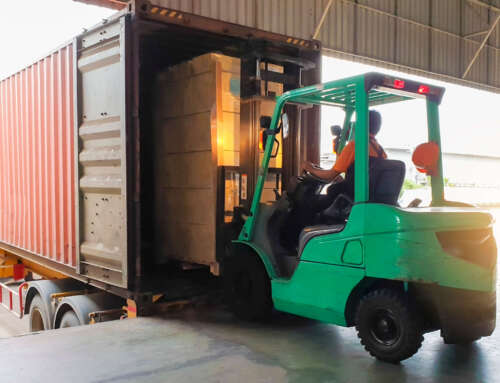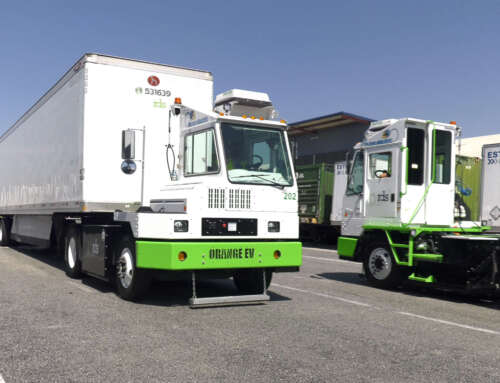Shipping can be costly and time-consuming, especially with gas prices on the rise. In a world where time and cost determine a company’s survival and success in the marketplace, compromising on these components is a considerable risk. As a result, many companies seek out third-party trucking services as a reliable alternative to the company-owned fleets. This can help a company meet the ever-growing demand for transporting goods from one place to another.
Various trucking companies offer a wide array of services from different price points. However, before deciding which option to go for, you need to know what each service offers. Read on to learn more about the trucking services so that you can make the right decision for your company.
1. Small Haul (LTL or Less Than Truckload)
Small Haul, also known as Less than truckload freight shipping (LTL), is used for the transportation of small freight or when freight does not require the use of an entire trailer. This shipping method can be used when freight weighs between 150 and 15,000 pounds.
Small Haul is ideal for small and medium businesses that ship fewer goods as compared to a large corporation. Through Small Haul, these businesses can take advantage of transporting goods cost-effectively on a frequent basis.
Benefits of Small Haul Shipping
Small Haul shipping has several benefits for any business that needs to deliver their products to customers around the country.
- Cost-efficient: Since your cargo only uses a small portion instead of the whole space in a trailer, you only pay a portion of the cost.
- Ship smaller quantities: You do not have to wait for your production to output a certain amount of product before you can ship out inventory. Smaller volumes that you can send out immediately means faster turnaround times and more sales.
- Increased security: A well-packaged pallet securely holds boxes of goods together and reduces the chances of damaged freight.
- Easy to track: Shipments are trackable because they are handled and “marked” in several points during transit.
- Environmentally-friendly: There are fewer trucks on the road when utilizing Small Haul shipping because all of these trucks are operating at their maximum capacity. As a business owner, you minimize your carbon footprint and help conserve the environment.
2. FTL or Full Truckload
Companies that transport goods in bulk quantity opt for Full Truck Load (FTL) transportation. The items mostly occupy the whole cargo space, or at least the bulk of it. Full truckload is one of the most popular shipping methods where the shipment takes up an entire truck. It is ideal for large shipments where a freight load from one company occupies the whole space on a truck destined to one client. FTL is perfect for shipping 10 to 22 pallets or delicate, high-risk loads.
There’s significantly less risk of damage in FTL because a shipment stays on the same truck throughout the journey. FTL is a secure, fast, and reliable shipping method as compared to LTL.
Benefits of FTL against Small Haul shipping
Choosing a shipping method for transporting goods can be a tricky decision. There are multiple factors that you need to consider while shipping. Sometimes it becomes difficult to decide whether to use FTL or Small Haul for shipping goods. Full truckloads have some added benefits over less than truckloads. Here are some observations on the primary benefits of FTL shipping.
There are many reasons why you would want to choose FTL over another type of shipping. Some of these reasons are:
- FTL will get your shipment delivered much faster than LTL.
- It is the best way to transport your large shipment.
- Your shipment will remain in the same truck during the entire shipping process.
- FTL is ideal for any high risk or delicate freight shipments.
3. Intermodal Freight Shipping
Intermodal transportation is defined as the transfer of goods from the point of origin to the point of destination using several modes of transport. The key distinction is that each channel is operated by a separate operator, and each leg is subject to a separate contract. This entails several carriers for the same travel route; each leg of the shipment is to be handled by a separate transport carrier. The shipper will have several contracts, one with each transport carrier to handle their specific segment of the shipment.
Intermodal transportation requires more logistics coordination and hands-on involvement. Using a single transport carrier to provide a door to door movement, may achieve the best routing. It requires less logistics coordination and paperwork. But getting the best routing is not the same as getting the best total shipping cost. Using a combination of different transport carriers is sometimes better to achieve the best total shipping cost for door to door movements.
There are some advantages to doing this. You can negotiate terms separately with each company. This also means more overhead for you, as you will need to keep track of several contracts with different providers. You may also be responsible for handling coordination of delays, as one company will not be aware of the delays that another company might be having.
The RDS Way
RDS Logistics Group knows that it takes a team to move businesses forward. When you work with RDS, we become a part of your team. We know that success requires us to rally together with our partners, our customers and communities to deliver the truth, transparency and reliability you need from your logistics partner.
We take pride in using courage and strategic vision to help businesses like yours reach their goals. We will always find a path forward, because if there isn’t one, we will make one. That is what people with a pioneering spirit do.
Call us today at (909) 355-4100 to discuss your warehousing and logistics needs. We always go the extra mile. Then even further. For our team, our partners, customers and communities. And we do it with a big smile and a little spunk.
Like we always say, “Let’s rally, together.”
Work With Us
Let’s Rally, Together!
Ready to get started with our logistic transportation services?



